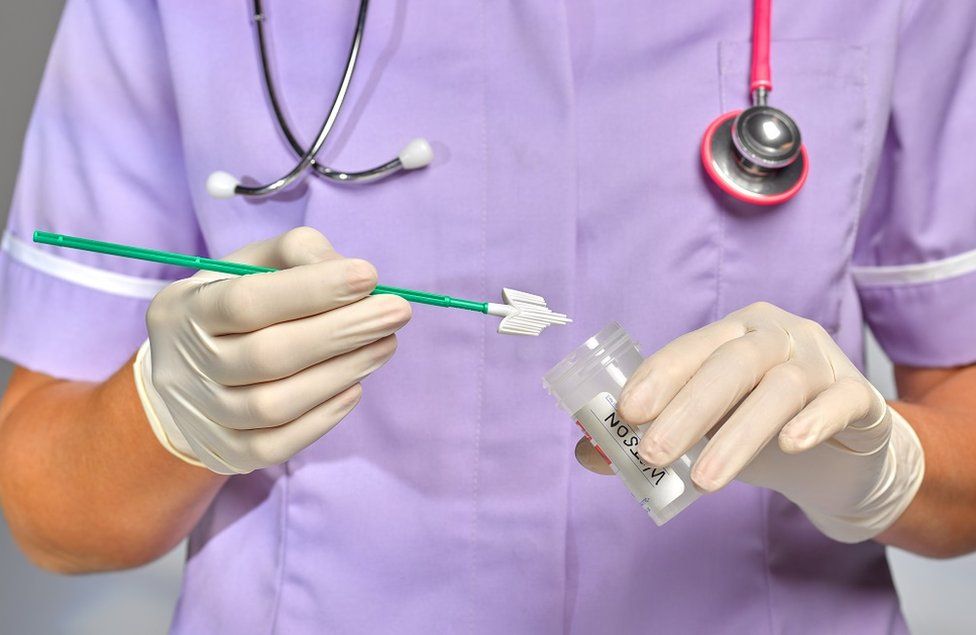Cervical cancer: Smear tests of 3,000 women to be reviewed
- Published

More than 3,000 women who are impacted by the southern health trust's cervical smear review and have had a smear test in the past six months, are to have their previous slides re-checked.
According to the trust, this move is not out of concern but to provide extra assurance to a group of affected women.
Letters were sent to homes this week.
The trust said these women have had a recent smear test as part of the cervical smear screening programme and received the result.
It added it recognised the anxiety the review had caused and as a result of feedback from women affected it had agreed to their request to review old slides as part of the process.
In letters, seen by BBC News NI, women have been advised of this decision.
The women had previously been told this would not happen as they had attended for a routine smear and their latest result would provide the most accurate assessment of their current risk of cervical abnormalities which may develop into cancer.
'Provide maximum reassurance'
Dr Stephen Austin, Southern Trust medical director, said the additional work would likely extend the overall slide review process "by only a matter of weeks" because of support from other trust laboratories.
It is expected that work on the additional phase will begin after the main review has been completed and will be finished by the end of the summer.
In 2023, BBC News NI revealed about 17,500 women in the area had received letters informing them their smear tests would be rechecked.
According to the trust "progress is being made" with 61% (about 10,700) of cases reviewed.
While a "small number" of cases had identified "minor abnormalities" and required further testing, the trust said this was to be expected.
To date no cases of cancer have been identified but trust officials warn the review is not complete.
The Southern Trust and Public Health Agency (PHA) urged women to continue to come forward for their smear tests when invited.
Primary HPV screening
In December 2023, Northern Ireland introduced primary HPV cervical screening.
It checks for an infection called human papillomavirus (HPV) - the cause of most cervical cancers.
High-risk HPV can cause cervical cells to become abnormal and potentially develop into cancer over time.
Virtually all cases of cervical cancer are linked to high-risk HPV.
This newer HPV test is regarded as a better indicator than cytology of identifying who is a higher risk of developing cervical cancer.
HPV is a common virus, and, in most cases, it will be cleared by the body's immune system and have no adverse health impact.
It is only when the virus persists, that it can cause cell changes in the cervix which, with time, can develop into cancer.
The trust and PHA say it is important to emphasise again that cervical screening is not a diagnostic test.
It is for people without symptoms and aims to detect early changes which could go on to develop into cervical cancer if left untreated.
Anyone with symptoms should always seek advice from their GP.
Related Topics
- Published9 October 2023
- Published25 January
- Published5 March